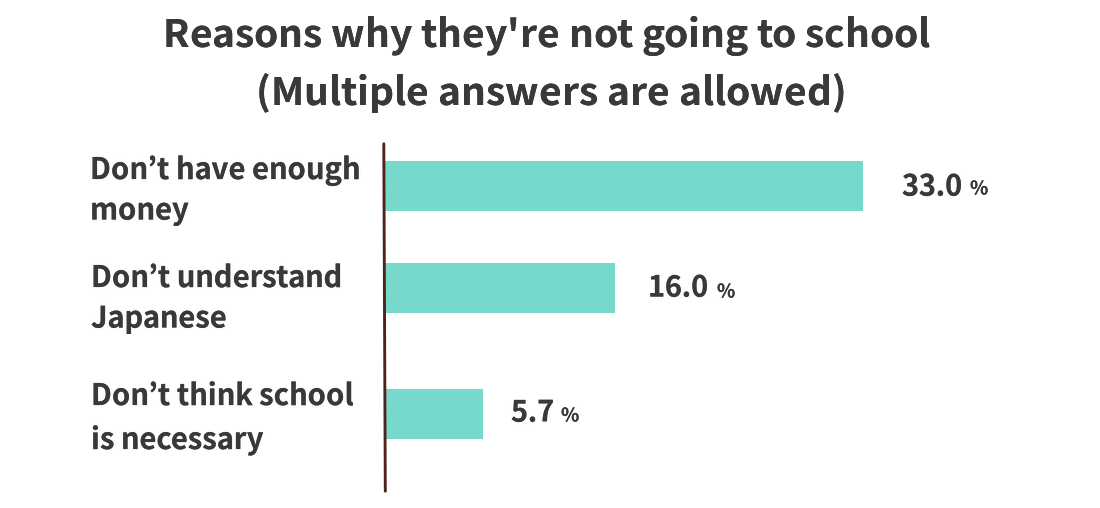Out of all the registered foreigners in the survey target area (such as Yuki city, Ibaraki Prefecture and other 29 city) who responded to the survey about their children at the age of compulsory education, 71 guardians who also cooperated in face-to-face survey and responded “Fushugaku (Not attending school)” in the survey

This survey is not implemented in all of the prefectures in Japan, and the number of respondents is limited, so it is hard to think that this result is representing all the actual situation of kids with foreign nationality. However, as you can see from the result, economical reason is ranking first and this indicates that for the background of the international kids, there is a complicated relationship between family circumstances. The reason which ranked the second was “Don't understand Japanese”, and we are considering this to be also a serious problem. It is not hard to imagine them isolated from society if they grow up to be an adult without having a chance to understand Japanese and get appropriate education from school. The third answer “Because they don't think school is necessary”, may be leading from the circumstance of them returning to their home country soon after living in Japan just temporarily. However, we don’t think that’s the case for all of those who answered for this reason. There must be another reason existing for this answer. That is, since they don’t understand Japan's peculiar system of examination and employment, (refer other page) their parents think they don’t have to have their kids go to school. And this may be making them face a severe situation in the future, such as having difficulty finding employment.







